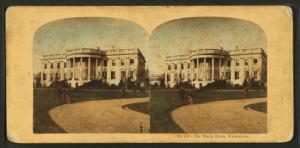Given recent reporting that raises the specter of a Presidential self-pardon, this unusual but not unprecedented question is in the air.
The place to start is with the Constitutional text itself, which is not surprisingly inconclusive on this issue. Article II §2 begins by declaring that the President “shall be commander in chief of the Army and Navy of the United States” and ends by stating “and he shall have power to grant reprieves and pardons for offenses against the United States, except in cases of impeachment.” What’s clear is the exclusion of impeachment. What’s seemingly unclear is whether this power would extend to a self-pardon because that possibility is not specifically excluded.
Although there has never been a case of Presidential self-pardon in the United States, the possibility was contemplated with regards to President Richard Nixon. An Office of Legal Counsel Opinion, Memorandum Opinion for the Deputy Attorney General, offered a succinct answer to the “question whether the President can pardon himself”:
Under the fundamental rule that no one may be a judge in his own case, it would seem that the question should be answered in the negative.
 The Memo does raise several other possibilities, including one under the 25th Amendment involving the Vice-President, as well as the legislative actions. The Memo, by Mary Lawton, was dated August 5, 1974; Nixon resigned a few days later. A month later, President Gerald Ford issued a Proclamation with a full pardon to Nixon.
The Memo does raise several other possibilities, including one under the 25th Amendment involving the Vice-President, as well as the legislative actions. The Memo, by Mary Lawton, was dated August 5, 1974; Nixon resigned a few days later. A month later, President Gerald Ford issued a Proclamation with a full pardon to Nixon.
A law review note article by now-Professor Brian Kalt of Michigan State University College of Law, Pardon Me?: The Constitutional Case Against Presidential Self-Pardons, springboards from the possibility that President George Bush, who had pardoned several people implicated in the Iran-Contra controversy would also pardon himself as he left office. Kalt concludes that “the intent of the Framers, the words and themes of the Constitution they created, and the wisdom of the judges that have interpreted it all point to the same conclusion: Presidents cannot pardon themselves.”
The bedrock principle that “no one can be a judge in his own case” is the foundation of the Kalt article and its sources as well as the OLC memo, as well as providing a rationale for even the possibility not being excluded in the Constitutional text.
It’s a principle, like so many others, that may be tested.

